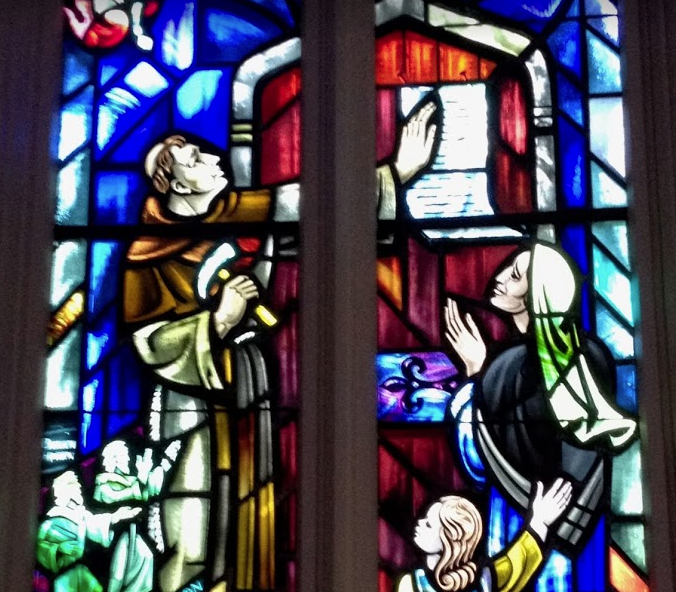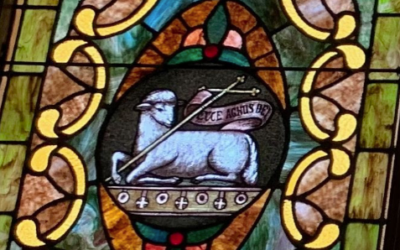Reformation Sunday – Grace produces salvation
Watch the service

Read the sermon
What Did You Expect?
What do you remember? Let’s start out with a question to ponder: What do you remember about your parents? It doesn’t matter much how old your parents are. Ponder that question for just a moment: what do you remember about your parents? What can you think of? I remember when I was a small boy, playing in the living room with my legos. I remember, out of nowhere, my dad came bursting out of the garage into the living room. And there was this deep-set scowl on his face and there was this deep-set pounding that sounded out from his feet. And I knew what that meant. I had done something wrong. And I was about to be punished. So I ran. And, shockingly, on that day, instead of following me, dad just stared at me. And the reason why was that the source of his anger was not the rebellious child in front of him. It was the vehicle in the garage behind him that would not be fixed no matter how much work he seemed to put and pour into it.
That’s my memory. But, my friends in Christ, what if that was the only memory I had of dad? Would that be an accurate picture of who my dad is? Let me tell you another story. In the summer time, on Fridays, dad would get home from work. And, while we were playing someone where in the house, we would hear and smell popcorn. And when we smelled that popcorn we knew it was going to be a great night. For that was mom and dad’s signal that we were going to Lolo Hot Springs. We’d eat popcorn all the way there. And then at night, we could swim through the steamy waters and look up through the pine trees and see the stars in the mountains.
It’s important to have both memories of a person, isn’t it? I mention that this morning because, in Luther’s day, all they had was one picture of Jesus. All they had was the “example”Jesus. Luther speaks about that this way:
Therefore you should grasp Christ, his words, works, and sufferings, in a twofold manner. First as an example that is presented to you, which you should follow and imitate. As St. Peter says in 1 Peter, “Christ suffered for us, thereby leaving us an example.” Thus when you see how he prays, fasts, helps people, and shows them love, so also you should do, both for yourself and for your neighbor. However, this is the smallest part of the gospel, on the basis of which it cannot yet even be called gospel. For on this level Christ is of no more help to you than some other saint. His life remains his own and does not as yet contribute anything to you.1
If I just remembered that first memory of my dad, it would not be enough, would it? To flesh out and round out who my dad is, I’d need to have and hold the second memory too, right? And so it is with Jesus. And what we need to recognize is that, in Luther’s day, what they had was “example” Jesus. For hundreds of years they were told that Jesus would come to judge the living and the dead. And they were told how good, noble, and pure Jesus was. And then they were told that they should follow in his footsteps.
There’s a huge problem with this, isn’t there? And Luther knew that, for the first time, almost all of the people would have God’s word written for them in their own language. And as they read those sacred words what Jesus would they find? He knew that they would come to those pages of scripture with hundreds of years of an outlook on Jesus that was incomplete. They would see Jesus as “example” Jesus. And the problem with example Jesus was not that this wasn’t a real perspective of who Jesus was. The problem was that this was not all of who Jesus was. The problem was that this Jesus did them no good when it came to their salvation.
And my friends in Christ, the same is true for us today. Years ago, when I was back in school, down the hill in New Ulm, I had a classmate who wanted to follow in Jesus’ footsteps. So he printed this bible passage and put it above his desk: “Finally, brothers and sisters, whatever is true, whatever is noble, whatever is right, whatever is pure, whatever is lovely, whatever is admirable—if anything is excellent or praiseworthy—think about such things.” (Phil. 4:8 NIV11-GKE)
It’s hard to get any better than that as a good bible passage to keep a person on the right track. Or so we’d think. But it had the opposite effect. He would see that bible passage there above his desk and he was reminded of all the times his thoughts and desires were the opposite of what was ‘true, noble, and right.’ Example Jesus did him no good in saving him from his sins. He needed another view of Jesus.
Luther let his people that he cared about know that “example” Jesus would not help them. But, sadly, they already had a built-in solution. They were taught that they needed to follow “example” Jesus. And if they didn’t, Jesus would find out and then finish them of Judgement Day. So, what was the solution they were taught? If you are afraid of Jesus, then follow the mother of God—follow Mary. And this is so wrong for two reasons: First, Mary was a sinner and could not save anyone from their sins. But look at what this view does to Jesus. But there was a second bad effect of making Mary fill a role she was never intened to fulfill. It turned Jesus into an angry judge as if that was all that the bible said about him. And that’s why Luther tells us this in his letter:
The chief article and foundation of the gospel is that before you take Christ as an example, you accept and recognize him as a gift, as a present that God has given you and that is your own. This means that when you see or hear of Christ doing or suffering something, you do not doubt that Christ himself, with his deeds and suffering, belongs to you.2
Don’t go to Mary. She cannot help you. Instead, go to Jesus. Go to Jesus and see him as gift and Savior. His gift to you is his faithfulness in your place. Notice how Peter speaks about that: “22 “He committed no sin, and no deceit was found in his mouth.” 23 When they hurled their insults at him, he did not retaliate; when he suffered, he made no threats. Instead, he entrusted himself to him who judges justly.” (1 Pet. 2:22–23 NIV11-GKE)
How beautiful these words are. There are times in our lives when our lives would work out so much better if, when we were pushed, we didn’t push back. But we know how impossible this is. Someone pushes us and either with our hands or our hearts, we push back. And often, when we push back, it’s impossible to not push back twice as hard and do twice as much damage as was done to us. And one of the reasons we do this is that we not trust that our Father in heaven will give us justice. Now, my friends in Christ, look at Jesus, but not as example. Look at Jesus as Savior. He trusted for you, in your place. And then look at Jesus our Savior in another way: ““He himself bore our sins” in his body on the cross” (1 Pet. 2:24 NIV11-GKE)
Jesus didn’t just trust in place. Jesus was punished in our place. And as a result he paid for all of our sins. Before you go to “example” Jesus, go to Savior Jesus. Spend your time there, seeing him and soaking up what that means for you.
Finally then, with Savior Jesus firmly in your heart, then turn and see example Jesus. Peter gives us two amazing promises as we do this: “24 “He himself bore our sins” in his body on the cross, so that we might die to sins and live for righteousness; “by his wounds you have been healed.” 25 For “you were like sheep going astray,” but now you have returned to the Shepherd and Overseer of your souls.” (1 Pet. 2:24–25 NIV11-GKE)
The first promise he gives us is that when we are weak, he will strengthen us. We will ‘live for righteousness.’ What an amazing promise. There is his new person in us that knows Jesus and strive to follow him. And Jesus promises to strengthen that nature in us. And also when we fall, Jesus forgives. Part of our everyday life is wandering like Sheep. Notice how Jesus gently forgives and then gathers us back again. How could we not follow a Savior like that and follow in his footsteps?
1 Word and Faith, ed. Kirsi I. Stjerna, vol. 2 of The Annotated Luther. Accordance electronic ed. (Minneapolis: Augsburg Fortress, 2015), 30.
2 Word and Faith, ed. Kirsi I. Stjerna, vol. 2 of The Annotated Luther. Accordance electronic ed. (Minneapolis: Augsburg Fortress, 2015), 30.



